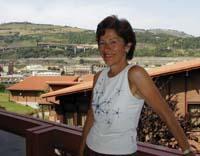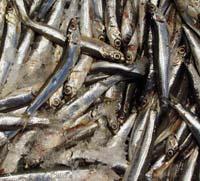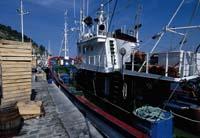Mari Carmen Gallastegi: "Ecologists and economists are not enemies"

I believe that ecologists have a function, and economists have another function. But I do not think that by being an economist we are not conservationists. We are also aware that economic activity causes damage, because it pollutes, because environmental assets are exploited in excess, until exhaustion in some cases like fishing.
It cannot be imputed to the economy that does not take into account the environment. In recent decades, a great effort is being made to consider environmental factors. As for energy, for example, the oil problem can make us have to make policies to reduce consumption. And the economists are not against these policies. Our job is to calculate costs: how much it would cost to carry out this policy and how much to do nothing. We face both options.
Ecologists, for their part, watch for certain values in environmental matters, I think they have an adequate ethics. And ecologists and economists are compatible, we are not enemies. We should work together, not separately.
It is very difficult, but it is necessary, because if we do not know how much a thing is worth, we do not appreciate it. However, in other areas prices are also fixed and we do it naturally. In life insurance, for example, price is put on life.

As with life, we will never know the value of environmental assets, but this approach effort will allow us to protect environmental assets. The final price of a good must also include the environmental assets used in the production, to which a price must be put. And, as we have said, it is not very precise, it is an approximation, but it helps to make decisions about economic policy like environmental accounting.
In the environmental accounting, for example, the number of trees cut for wood, the number of hectares of land destroyed for the construction of a road, the condition to the landscape that has occurred after the construction of a building, etc. In Europe there are countries that do environmental accounting and we are also working on it.
Yes, but there are indicators that replace it. I think we all agree: The GDP is short to express development and quality of life. Because if you live in a territory where GDP is growing rapidly, but the air you breathe is completely contaminated... so much GDP is useless.
The time is that the United Nations proposed other indicators such as educational level, health, the environment or the gap in the distribution of the income of citizens. If the GDP growth of recent years is represented in a graph and compared to these other indicators, it is observed that these are well below the other. The quality of life is lower than that reflected in GDP. Therefore, GDP is a very scarce indicator for the quality of life of peoples and citizens.
These indicators have not been taken into account so far in the national accounts, but now yes, even if gradually. A great effort is being made, and in the last 30 years a great deal has been made.

Yes, there were few people in this specialty of the economy, it can be said that it was exotic. Just 30 years ago, market failures were barely investigated (and the environmental economy is a clearly failed field). At that time, the most important thing was to analyze the functioning of the market.
But life is going back a lot, and today the important thing is to investigate the failures of the market: how we have so many environmental problems, why we have no fishing resources, why we have exhausted marine resources, etc.
This is what is known as the tragedy of common properties. And it happens in all areas. There are always difficulties to manage something that is of everyone. We don't look after the street as well as our home, for example.
From the economic point of view, the subject has been addressed in depth, what happens with the ownership of all. And it has been proven that if an external agent does not apply the rules (the public sector is usually the regulator), the resource is exploited in excess. In fishing, for example, the fisherman knows that what he does not fish can be for others, and has no guarantee that from now on he will have fishing, so he catch as much as possible.
The same happens with all the properties of the free disposal regime (atmosphere, sea...) that are overexploited. And that is precisely the tragedy of common properties, which, being of everyone, is not of anyone. The term was known many years ago by Hardin. And in fishing, for example, research on the exploitation of stocks has a great tradition: biomass is of all, how should it be regulated so that it does not run out?

Fishing has been regulated, but they have failed. The Community's fisheries policy has failed for two fundamental reasons: States decide how much and control is in their hands - and do not control it -. In fact, fishing policy depends on the European Commission, but control is in the hands of the member states. However, they have had no incentive to carry out this control, and as one of its members does not know if others control or not, as it does not.
However, they are about to solve the problem, at least they are aware of it. And they are also aware that they should stick to the reports of scientists, even if they have a margin of error in calculations. If not, what has happened with anchovy occurs. The scientists insisted that the biomass available for fishing was very small, that the species had to be protected, which was overexploited. But at a political level it is difficult to make a distribution, especially when there is little to distribute (when there is a lot it is easier to do so). And they were distributed more than recommended by the scientists.
Of course. It is clear that politicians need the work of scientists, need their advice, and attend. And it is that they have always had the advice of the scientists, but they have not ignored them. And today it is necessary to act with prudence. The precautionary principle is gaining strength, especially because we have a lot of uncertainty in environmental issues. The data we have are not exhaustive, so it is advisable to conserve, exploit less than what the data say.
Buletina
Bidali zure helbide elektronikoa eta jaso asteroko buletina zure sarrera-ontzian











